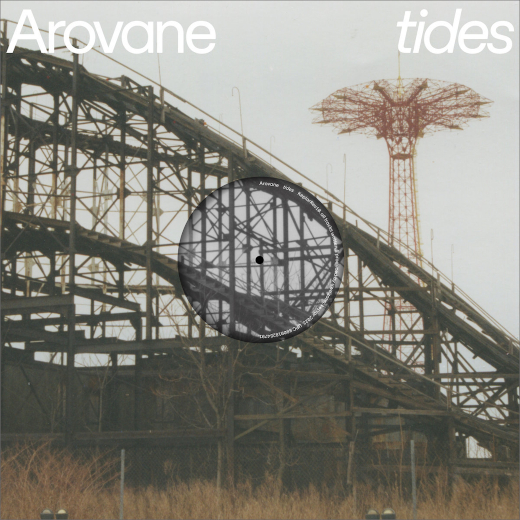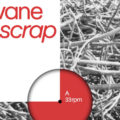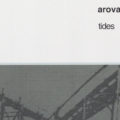Tides tells a story, has a vision, and is not just a collection of works as so many albums fell foul of.

A strong example of confident production and clear themes
Twenty two years ago I, presumably much like many of yourselves, was a very different person. Many things passed me by or at the most were given fleeting attention with a disregard to their actual importance. Arovane’s Tides was one such thing but it’s important that people are given second chances to rectify their errors. Now we all may benefit as Keplar reissue this important work, remastered and pressed with updated artwork to boot.
Back in 2000, my physical media collection was what one might expect—a transitive mix of that which I’d amassed in the teenage-angst years with more formative output which was truly beginning to shape my tastes for the years to come. I’d seen the name Arovane—most likely in large Winamp playlists of music curated from various ‘sources’—but never really given much thought to things past that.
Actively listening two decades later, I can see why. This would very much have become background music to me back then, where my actual listening choices would most definitely have veered into the heavier selection that IDM had to offer and all the pre and post-clubbing benefits it would serve up.
Maybe I’ve calmed down, or maybe I’ve just grown in my ability to audition and analyse what’s put in front of me. Maybe my brain is just slowing down with the inevitable march of time. Whatever it is I’m glad it’s afforded me the opportunity to sit back and revisit such material.
Admittedly dated by today’s standards, it’s important to not judge Tides against the same. In context, it was a perfect downtempo release for its time, a stark contrast to the ever-loud and increasingly-complex noise of emerging modern electronic music.
Tides was a perfect downtempo release for its time ::
I’m actually surprised this didn’t tickle my fancy more upon original release, it has so many elements of things I greatly enjoyed at the time—a distinct Bristol feeling in the percussion with double-kicks and strong toms, a clear similarity in parts to BoC (who, by that point, had very much solidified themselves as the go-to for chill-out) and a clear path from beginning to end. The release tells a story, has a vision, and is not just a collection of works as so many albums fell foul of.
The time is also ripe for represses of such vintage. Like many, originals are clearly becoming harder to source in good condition and this is exactly the kind of material that should be resurfacing, rather than 24 different colour variations of the same Taylor Swift release (apologies to Taylor Swift fans.)
Tides has since found its place in my regular listening schedule, a strong example of confident production and clear themes, surprisingly easy to work out to in my quest to become a meathead at my local gym. For anyone that may have missed this the first time around, you’d be hard-pressed to find another opportunity right now to come back to something that I hope will give you as much enjoyment as it has I.
For posterity, here’s our November 2000 review of Tides, and its original release with City Centre Offices. Let’s see where the tides take us in the next 22 years.
“These tracks recreate, electronically, sounds that one would come across at the ocean, and reflects an inspiration by said water. The drum patterns and background noises make up the majority of Uwe Zahn’s tidal effect, with staggered, laid back drum sounds, and patterned noise to emulate waves. But do not be mistaken, the tracks all develop and change. There is a lot more to them than just loops of drums sounding like waves.”
Tides 2022 Remaster is available on Keplar. [Bandcamp]


















![Pole :: Tempus Remixes (Mute) — [concise]](https://igloomag.com/wp/wp-content/uploads/2025/04/pole-tempus-remixes_feat-75x75.jpg)






![Hasbeen :: Bunker Symphonies II (Clean Error) — [concise]](https://igloomag.com/wp/wp-content/uploads/2025/04/hasbeen-bunker-symphonies-ii_feat-75x75.jpg)

